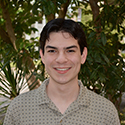How did you find your internship?
I found out about the internship through peers and classmates who were familiar with the Rapoport Center.
Describe the work you have done as an intern.
As an intern at the Rapoport Center this summer, I worked on a research project entitled “The Persistence of Inequality: ‘Essential’ Work and COVID-19” where we looked at the ways the pandemic has exacerbated inequalities among Latinx construction workers in Austin. I collaborated with a team of researchers from Harvard University and Northeastern University School of Law to discuss legal and political drivers that have made COVID-19 especially destructive to Latinx and other Black, Indigenous, People of Color (BIPOC) communities.
What has been the most rewarding aspect of your Connecting Experience so far?
The most rewarding aspect was being able to connect with so many amazing scholars who are also interested in human rights and social justice. I gained valuable insights throughout the collaboration and am thankful for the support and encouragement from my colleagues. It is powerful knowing that the work we did this summer will be used to inform, shape, and enhance scholarship and policy in the future.
In what ways has this Connecting Experience shaped your plans for the future?
This Connecting Experience showed me how valuable centering the experience of those you research is. We cannot try to speak for people or on behalf of communities; rather, we need to let them speak their truth. This is the only way we can shift research from, and academia away from, elitist, white supremacist, colonialist norms, which is what I plan to do with my own future research.
Discuss the relationship that you had with your faculty mentor(s) and how (s)he helped you during this Connecting Experience.
Dr. Vásquez encouraged me throughout the internship and checked-in often to see how it was going. He attended and supported me at the research presentation workshop at the end of the internship.


